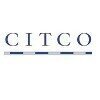Filter interviews by
Protiviti Financial Service Advisor Interview Questions and Answers
Protiviti Financial Service Advisor Interview Experiences
1 interview found
I applied via Recruitment Consulltant and was interviewed before Aug 2023. There was 1 interview round.
(3 Questions)
- Q1. Provide the list of recommendations you provided which led to prevention of financial loss.
- Ans.
Implemented fraud detection software, conducted regular audits, provided training on cybersecurity best practices.
Implemented fraud detection software to monitor transactions and flag suspicious activity
Conducted regular audits of financial records to identify any discrepancies or potential fraud
Provided training to staff on cybersecurity best practices to prevent phishing scams and data breaches
- Q2. Walk through your previous job roles.
- Ans.
I have held various roles in financial services, including financial advisor, investment analyst, and wealth manager.
Worked as a financial advisor, providing personalized financial advice to clients
Analyzed investment opportunities and recommended strategies to maximize returns
Managed wealth portfolios for high-net-worth individuals
Collaborated with team members to develop comprehensive financial plans
Stayed up-to-date
- Q3. Top 3 KPIs for your department.
- Ans.
1. Client satisfaction rate 2. Average revenue per client 3. Number of new clients acquired
Client satisfaction rate is a key indicator of how well the department is meeting client needs and expectations
Average revenue per client helps measure the department's effectiveness in generating revenue
Number of new clients acquired shows the department's ability to attract and retain clients
Interview Preparation Tips
Interview questions from similar companies

Interview Questionnaire
1 Question
- Q1. About finance and banking
Interview Preparation Tips
Experience: It was really nice. Learnt from others and also analysed the thinking of others on how they wish to do betterment for our nation.
Tips: In gd. Always be confident and speak. Don't try to prove your point in an aggressive manner but also try to stick to your point. Most importantly , listening skills must be build before you attend a gd.
Round: Technical Interview
Experience: They went through my resume and asked me on my financial skills.
Tips: Brush up your knowledge first before attending the technical round
Round: Stress Interview
Experience: Stress interview was taken by hr head where he kept asking back to back questions. Few were related to finance and others were general. Gave me situations where in I have to decide the course of action to be taken.
Tips: Finish your point and be polite. Stress interview is to not only see your knowledge but also how you react or behave during the stress situation.
College Name: NA

I applied via Walk-in and was interviewed before Apr 2021. There was 1 interview round.
(2 Questions)
- Q1. Tell me how did you managed tough stakeholder
- Q2. Answer based on you real life experience
Interview Preparation Tips

Interview Questionnaire
1 Question
- Q1. Why Deloitte?

I applied via Referral and was interviewed before Oct 2019. There were 5 interview rounds.
Interview Questionnaire
1 Question
- Q1. IFRS, accounting generics questions such as accruals, prepayment, amortization, capitalisation etc
Interview Preparation Tips

I applied via Recruitment Consultant and was interviewed before May 2020. There were 3 interview rounds.
Interview Questionnaire
1 Question
- Q1. For technilogy consulting, they will ask you questions on subject matter expertise, experience in leading teams, people management, client experience management, stakeholder management, sales and pre sales...
Interview Preparation Tips

I applied via Walk-in and was interviewed before Jul 2020. There were 5 interview rounds.
Interview Questionnaire
1 Question
- Q1. Choose one topic and speak for 2 minutes
Interview Preparation Tips
It's common to feel nervous even for the most experienced but it's important we hold all our fears within and speak confidently.

I applied via Referral and was interviewed before Sep 2020. There were 4 interview rounds.
Interview Questionnaire
3 Questions
- Q1. Regarding my current profile? The work I deliver in my current role?
- Q2. Mostly all questions were related to the RPA domain, on which I was working.
- Q3. Go through the JD only JD-specific questions will be asked.
Interview Preparation Tips
Make sure you have your domain knowledge.
Question will be scenario-based mostly

I applied via Campus Placement and was interviewed before Nov 2019. There were 3 interview rounds.
Interview Questionnaire
1 Question
- Q1. Why did you choose this company?
Interview Preparation Tips

I applied via Referral and was interviewed before Dec 2020. There were 4 interview rounds.
Interview Questionnaire
1 Question
- Q1. Detailed process flows and accounting. Experience in different modules.
- Ans.
I have extensive experience in detailed process flows and accounting across various modules.
I have worked with different accounting software such as QuickBooks, Xero, and SAP.
I have created detailed process flows for various departments such as procurement, sales, and finance.
I have experience in different modules such as accounts payable, accounts receivable, and general ledger.
I have also trained team members on acco
Interview Preparation Tips
Protiviti Interview FAQs
Tell us how to improve this page.
Protiviti Interviews By Designations
- Protiviti Consultant Interview Questions
- Protiviti Senior Consultant Interview Questions
- Protiviti Accountant Interview Questions
- Protiviti Research Associate Interview Questions
- Protiviti Deputy Manager Interview Questions
- Protiviti Manager Interview Questions
- Protiviti Financial Analyst Interview Questions
- Protiviti Associate Consultant Interview Questions
- Show more
Interview Questions for Popular Designations
- Process Advisor Interview Questions
- Financial Advisor Interview Questions
- KYC Analyst Interview Questions
- Financial Analyst Interview Questions
- Senior Financial Advisor Interview Questions
- Financial Service Associate Interview Questions
- AML Analyst Interview Questions
- Mortgage Underwriter Interview Questions
- Show more
Protiviti Financial Service Advisor Interview Process
based on 1 interview
Interview experience
Interview Questions from Similar Companies
Fast track your campus placements
|
Consultant
487
salaries
| ₹0 L/yr - ₹0 L/yr |
|
Senior Consultant
431
salaries
| ₹0 L/yr - ₹0 L/yr |
|
Deputy Manager
294
salaries
| ₹0 L/yr - ₹0 L/yr |
|
Manager
209
salaries
| ₹0 L/yr - ₹0 L/yr |
|
Consultant2
180
salaries
| ₹0 L/yr - ₹0 L/yr |

KPMG India

Deloitte

PwC

Ernst & Young
- Home >
- Interviews >
- Protiviti Interview Questions >
- Protiviti Financial Service Advisor Interview Questions


















